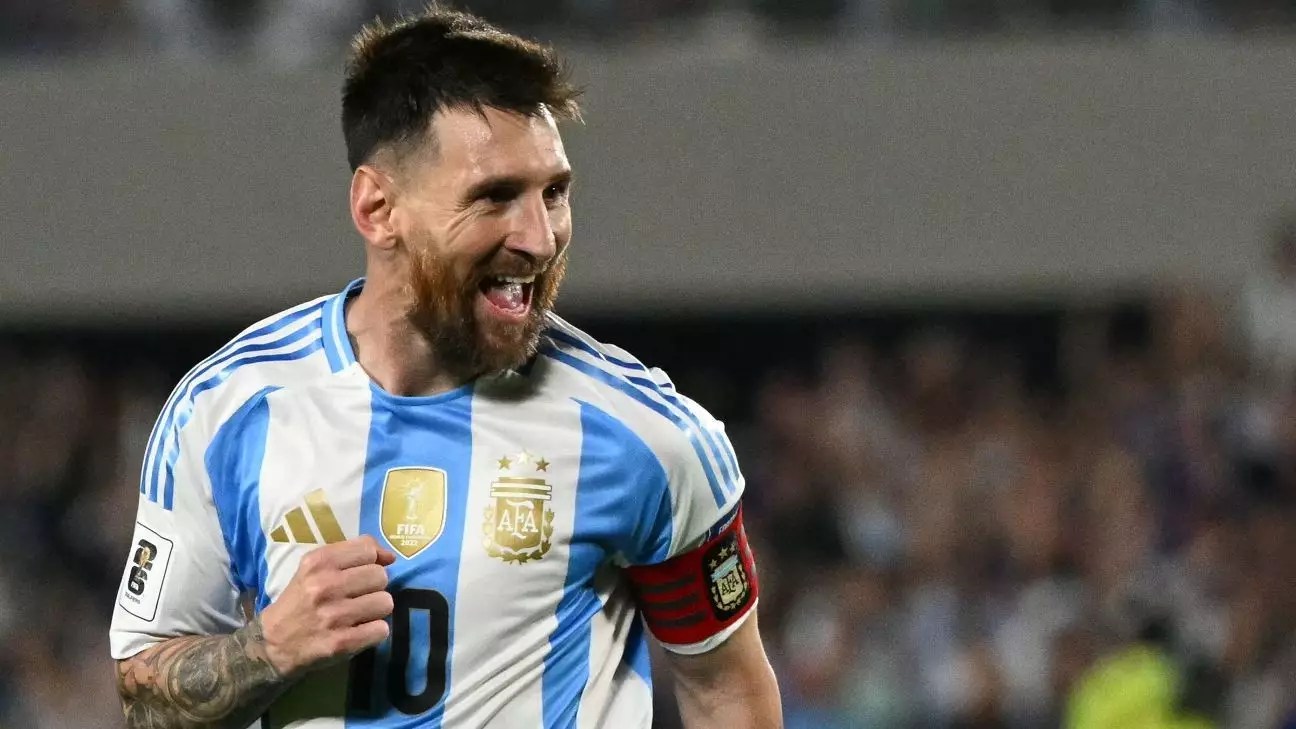As Lionel Messi approaches the twilight of his illustrious career, he finds himself reflecting on what truly matters to him. This moment of introspection comes just after he led Argentina to a glorious victory in the 2022 FIFA World Cup, a triumph that had many speculating whether it would be his final international tournament. However, Messi has recently expressed a more measured approach to his career, emphasizing the importance of happiness and health over the ambition of playing in the 2026 World Cup, scheduled to take place across the United States, Canada, and Mexico.
At 37 years old, Messi stands at a significant crossroads in his career. He clearly states that his focus is no longer solely on aspiring to chase titles or accolades but rather on enjoying the game that he loves. “I value that more than reaching the 2026 tournament,” he remarked, highlighting a crucial change in perspective that many seasoned athletes experience. This shift suggests a deeper understanding of the mental and emotional challenges that accompany professional sports, especially at an elite level.
The transition Messi has made from FC Barcelona to Inter Miami CF marks a significant chapter in his professional journey. Since his departure from Barcelona in 2021, he transitioned into Major League Soccer, a league with its unique challenges and dynamics. Some might have seen this move as a potential decline in competitiveness, but Messi turned it into a platform for continued greatness.
After joining Inter Miami, Messi’s influence on the pitch has been immeasurable. He spearheaded the team to success, including a commendable performance of 21 wins, four losses, and eight draws in the 2024 season. This achievement was underscored by Inter Miami lifting the Major League Soccer Supporters’ Shield and setting records for points in a single season. This remarkable ascent illustrates not just his physical capability, but also his leadership qualities and innate passion for the sport.
Messi’s impact extends far beyond just statistics and records; he has become a symbol of hope and inspiration for a generation of aspiring soccer players. His journey from the streets of Rosario, Argentina, to becoming a global icon is a testament to hard work, resilience, and dedication. The way he carries himself, with humility and grace, only adds to his legacy as one of the sport’s greatest ambassadors.
In his career spanning two decades, Messi has achieved tremendous success, including 112 goals in 189 appearances for Argentina, winning two Copa America trophies and a World Cup. Yet, what seems to prevail in his thoughts is not just the number of trophies but the joy derived from playing. He recognizes that the twilight of his career is about relishing each moment, each game, and every interaction on the field.
Messi has left the door ajar for a potential appearance in the 2026 World Cup, signaling that while he cherishes the current moment, he is not completely closing himself off from future opportunities. This open-mindedness is refreshing, especially amid the high-stakes environment of professional sports where deadlines and retirements often loom larger than life.
While many athletes obsess over concrete goals and milestones, Messi’s approach promotes a healthy work-life balance, one that is often overlooked in professional sports. His emphasis on personal happiness marks a progressive path for younger athletes to follow, reminding them that careers are not only about pressures and accomplishments but also about enjoying the journey that comes along with it.
Lionel Messi serves not just as a sporting legend but as a paradigm of prioritizing mental well-being and happiness in a physically demanding profession. As he continues with Inter Miami and potentially contemplates the 2026 World Cup, fans and athletes alike are reminded that at the core, it’s the love for the game that sustains a fulfilling career. As he aptly puts it, “When I get to do what I love, I am happy.”


Leave a Reply